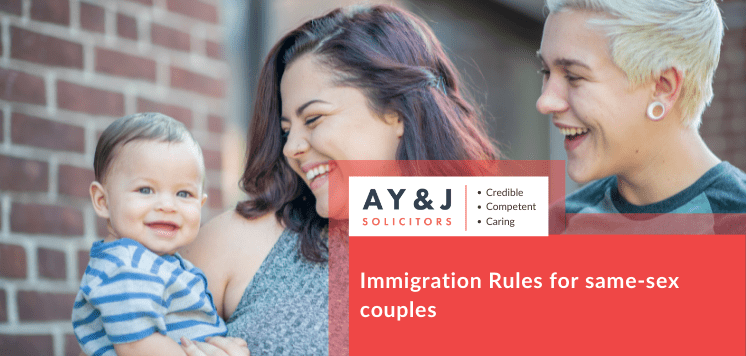Disclaimer: The information in this blog is accurate as of its publication date. Any updates after that date are not reflected here.
The Home Office has confirmed that effective from 9AM on 11 April 2022, the Sole Representative visa route will be closed to new applicants.
Self Sponsorship is a good alternative to consider if you’re considering business opportunities within the UK. A UK Sponsor is not required and this can lead to permanent residency and British citizenship for yourself and your family.
On 4 June 2020, the Home Office introduced the ‘Genuineness Test to the Sole representative visa route, quite swiftly, and out-of-the-blue.
The new requirement means that now prospective applicants need to prove the genuineness of their overseas employment, overseas business activities and UK expansion plans – with hard evidence.
Table of Contents
Why has the Home Office amended the rules?
In early 2019, Home Office discontinued the Tier 1 (Entrepreneur) Visa for new applicants and replaced it with the Startup Visa and Innovator Visa. The eligibility criteria for startup and Innovator visas are notably stricter and more rigorous.
Specifically, applicants must be endorsed by an approved body and can only secure an endorsement if the business meets the criteria of ‘innovation, viability, and scalability’.
With these changes, there was an emerging concern from law-makers that certain applicants, who cannot meet the Startup and Innovator visa requirements, would use the a Representative of Overseas Business visa as an alternative route, for ineligible purposes.
What is the ‘Genuineness test or criteria’ for a Sole Representative Visa
The closure of the Tier 1 (Entrepreneur) Visa forced those who owned overseas businesses to establish themselves in the UK through alternative entry routes. This is a problem as, often, in small organisations, the ideal person to open up a branch office or subsidiary is a co-founder. These are the people who have the decision-making authority and knowledge of the business required under the Sole representative visa entry criteria. Unfortunately this does not take into account the specific and strict mandatory criteria that the Sole Representative must not be a majority shareholder (owner) of the overseas business.
In deciding the application, the Home Office will consider the representative’s seniority as an employee of the overseas business: their skills, knowledge and experience as well as the viability and scalability of the employing company’s business plans for setting up a UK enterprise.
The Home Office’s Genuineness test aims to:-
” Prevent an overseas business sending a representative to facilitate their entry to the UK when there is no genuine intention for them to establish a branch or subsidiary in the UK.”
The change in rules directly bestows on Home Office decision-makers the power to refuse any application they believe, on the balance of probabilities and (lack of) evidence provided, that the business and/or candidate have no genuine intention to set up a UK enterprise.
A Deep dive into the Sole Representative Visa Genuineness Test
Applicants must provide evidence that the subsidiary or branch office has not been
“established solely for the purpose of facilitating the entry and stay of the applicant”.
It is a critical change, as it could allow decision-makers to reject applications based on subjective assumptions about the applicant or overseas business.
Whenever a sole representative visa applicant applies for entry clearance, the Home Office must be satisfied that the applicant meets all the required criteria to prove they have a ‘genuine intention’ and the ability to establish a presence for the overseas business in the UK. To assess this, the Home Office may ask for:
- Additional documentation or evidence to demonstrate the applicant meets all of the criteria
- For the applicant to attend an interview with the Home Office.
The Rules, including the Genuineness Test are designed to:
- Prevent an overseas business from sending a representative to facilitate their entry to the UK when there is no genuine intention for them to establish a branch or subsidiary in the UK.
- Clarify that that overseas businesses must be active and lawfully trading and intend to maintain their primary place of business outside the UK.
- Reflect that applicants must have the skills, experience, knowledge and authority to represent the overseas business in the UK.
- Clarify that that applicants must be senior employees and cannot engage in their own business or represent any other business in the UK.
- Reflect that the ownership of overseas businesses is not limited to businesses that issue shares.
- Prevent majority overseas business owners from entering as the dependent spouse, civil partner, unmarried or same-sex partner of a representative of their own business. It will prevent business owners from circumventing the rules intended to prevent them from relocating their business to the UK under this visa route.
- Clarify that the branch or subsidiary must have been established in the UK and not overseas.
Additional documentation for proving ‘genuineness.’
Further to the Genuineness Test, the evidential burden on prospective sole representative applicants (and their overseas employing companies) has been increased.
The Home Office may further enquire or request more evidence in cases where:
- The overseas business has a limited number of staff or trading establishments
- The overseas business has no previous record of foreign expansion
- The overseas business has only recently been set up
- There is little or no evidence of a physical or online trading presence and business activities relating to the overseas trade
- The prospective sole representative applying has previous activity in the UK unrelated to the business they now represent and applying to set up
- Non-standard information is needed to determine whether the prospective applicant owns or controls the business.
Applicants who fall into any of the above categories should be prepared to submit information as and when requested by the Home Office, to support their case.
It is imperative to note that the guidance states these situations do not automatically indicate a lack of genuineness and should not be grounds for refusal in themselves. It also underlines that applicants should be given a reasonable opportunity to address any areas of concern before the application is refused.
Battle it with Legal Support
A Sole representative applicant’s “genuineness” has become a key element of the visa application and should not be overlooked.
The Immigration Rules require convincing evidence of intention and credibility that the company is deploying someone suitably qualified to set-up a genuine overseas branch or enterprise in the UK.
The criteria to be met can appear daunting, but are surely manageable with an immigration lawyer’s advice.
A Y & J Solicitors have been advising sole representative visa applicants step-by-step to ensure that the overseas business they represent meets the demanding criteria laid down by the Home Office.
The ‘Genuineness test’ helps the Home Office to monitor and ensure that the Sole Representative route is not being abused for illegitimate purposes and that the organisations sending Sole Representatives can genuinely flourish and subsist legally in the UK, with the support of their Representative. Incidentally, this test also provides some reassurance to overseas applicants for the visa, that they are indeed being hired by a genuine organisation with viable plans for their UK endeavours.









